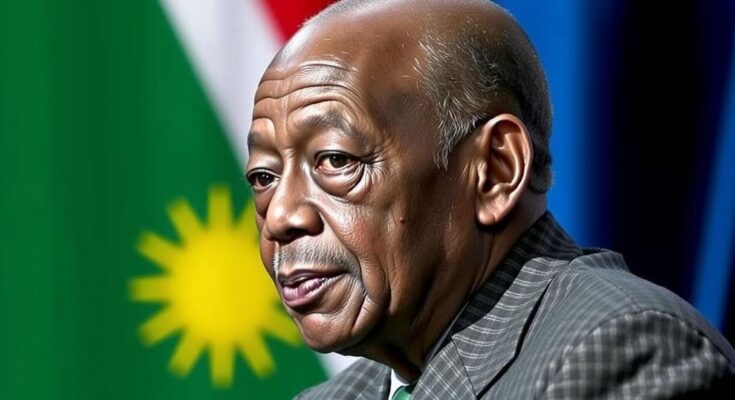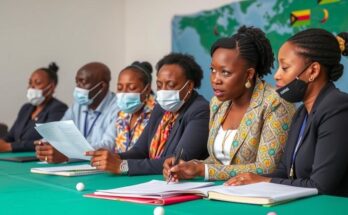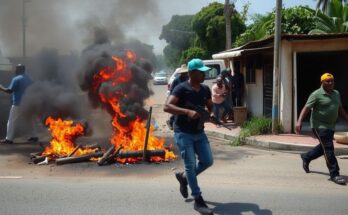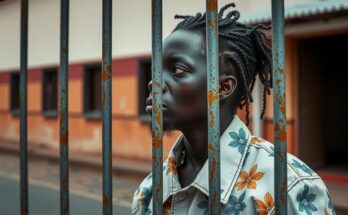Botswana’s elections on October 30, 2024, were pivotal in deciding the future of the Botswana Democratic Party, which has ruled for 58 years. President Mokgweetsi Masisi seeks reelection amid economic challenges, including a high unemployment rate linked to a decline in diamond demand. Opposition candidates are challenging the BDP’s dominance as the nation faces calls for economic diversification and policy reform. The results, expected shortly after polling concludes, will profoundly affect Botswana’s political landscape.
On October 30, 2024, Botswana citizens participated in crucial elections to determine whether the Botswana Democratic Party (BDP), which has maintained power for nearly six decades, would secure another term. The BDP, led by President Mokgweetsi Masisi, has ruled since the country achieved independence from Britain in 1966. Polling stations across the nation opened as voters engaged in the electoral process that would ultimately shape the country’s parliamentary structure, subsequently influencing the presidential selection. President Masisi, aged 63, is vying for a second and final term in office. Under his administration, Botswana has garnered recognition as a stable democratic nation with a respectable standard of living. However, the country is currently grappling with substantial economic challenges. A significant downturn in global diamond demand—an industry that dominates Botswana’s economy—has led to a marked increase in unemployment, which stands at an alarming 27%, with youth unemployment even more pronounced. In response to these pressing issues, the BDP has acknowledged the necessity for policy reform. The party aims to diversify the economy, which is heavily reliant on diamonds, accounting for over 80% of Botswana’s exports and contributing significantly to its GDP. Three notable challengers for the presidency include Duma Boko from the Umbrella for Democratic Change party, Dumelang Saleshando of the Botswana Congress Party, and Mephato Reatile from the Botswana Patriotic Front, each advocating for a shift in governance. As election day unfolded, there were indications of renewed competition, fueled by dissatisfaction over economic management. Voter registration records indicated that over a million citizens were eligible to cast their votes in a nation characterized by a vast yet sparsely populated landscape, predominantly comprised of the Kalahari Desert. The BDP, meanwhile, has committed to prioritizing alternative revenue streams through mineral processing, as well as bolstering the agriculture and tourism sectors. The elections also reawakened tensions between President Masisi and former President Ian Khama, who has vocally opposed Masisi’s administration following their fallout after Khama’s departure from the BDP in 2021. Recent financial constraints, including delayed salaries for government workers—a deviation from Botswana’s previous reputation for governmental efficiency—have further fueled public discontent. As counting commences after the polls close, the forthcoming days will reveal the electorate’s decision regarding the continuation of BDP’s long-standing rule.
Botswana, known for its democratic stability and economic success, has been ruled by the Botswana Democratic Party since its independence from British colonial rule in 1966. The BDP’s lengthy tenure has established it as one of the longest-ruling parties in Africa. However, as the nation enters a period of economic turbulence, impacted by a decline in diamond sales—a pivotal sector of the economy—citizens are confronted with the potential need for political change. With high unemployment rates, particularly among youth, the BDP is striving to adapt its policies to meet the electorate’s demand for economic diversification and greater accountability. The contest ahead involves multiple opposition candidates seeking to unseat the incumbent Peesident Masisi, thereby marking a significant turning point in Botswana’s political landscape.
The elections in Botswana represent a critical juncture in the nation’s political evolution, with the potential to alter the course of governance after 58 years under the BDP. With economic challenges looming, the electorate’s decision may reflect a desire for renewal and innovation in leadership. The outcome will not only determine the composition of Parliament but will also signal the future direction of a country renowned for its relative stability amid a backdrop of African political complexities.
Original Source: apnews.com




